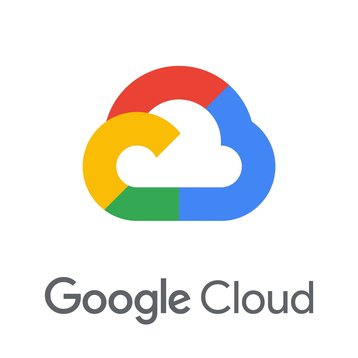Alphabet has posted its quarterly earnings results, with Google Cloud accounting for close to $9.2 billion in revenue. Microsoft's cloud division also reported healthy income growth as the sector's biggest players continue to cash in on demand for AI tools.
Google Cloud's revenue for the last three months represents 25.66 percent year-on-year (YoY) growth. Notably, the platform recorded operating income of $864 million in the last quarter, compared to a loss of $186m a year ago.
For the fiscal year 2023, Alphabet's overall net income was $73.8bn, which was partially bolstered by the company's decision to extend the lifespan of its servers and networking kit.
Alphabet first extended the life of its equipment in 2021, increasing servers from three to four years of run-time, and the networking equipment from four to five years. In 2023, this was extended again, with the company deciding that it could run for six years before being replaced.
In practice, this saw depreciation expenses reduced by $983 million in Q4 2023, and increased net income by $765m. Across the full year, depreciation dropped $3.9bn and net income increased by $3bn.
Despite this, the company has invested significantly in new infrastructure. Q4 saw a total capital expenditure of $11bn, which according to CFO Ruth Porat was driven by "investment in our technical infrastructure with the largest component for servers followed by data centers."
This followed a Q3 CapEx of $7.6bn. According to Porat, the dramatic increase is due to the "outlook for the extraordinary applications of AI to deliver for users, advertisers, developers, cloud enterprise customers, and governments globally and the long-term growth opportunities that offers." This is set to continue in 2024, with Porat adding: "We do expect 2024 full year CapEx to be notably larger than 2023. As a note, I think you all know this, but timing of cash payments can affect the quarterly CapEx number. But the main point is we’re continuing to invest."
CEO Sundar Pichai said that the company would continue to invest in infrastructure, both data centers and compute, to support the growth of AI.
Despite its cloud growth, Google's shares have taken a hit following the announcement, dropping in value by six percent. Much of this has been put down to Google's ad business revenue, which delivered $65.52bn, less than analyst estimates of $65.94bn.
Microsoft Cloud revenue tops out at $33.7bn
Elsewhere, Microsoft's quarterly earnings saw the company's cloud business exceed estimations, posting revenue of $33.7bn, $1.5bn more than the expected $32.2bn and up 24 percent YoY.
The company's Intelligent Cloud business unit, which includes its Azure public cloud platform, contributed $25.8bn of that revenue, up 20 percent YoY.
As with Google, a major driver of growth was AI. Microsoft claims that six percent of Azure's growth came from AI services. "We’ve moved from talking about AI to applying AI at scale," said Microsoft CEO Satya Nadella. "By infusing AI across every layer of our tech stack, we’re winning new customers and helping drive new benefits and productivity gains across every sector.”
Nadella also revealed that Microsoft has 53,000 Azure AI customers, a third of whom came on board last year.
In response to a question over whether most of the AI done on Azure is training or inference, Nadella said: "Most of what you've seen for the most part is all inferencing. So, none of the large model training stuff is in any of our higher numbers at all. What small batch training, so somebody is doing fine-tuning or what have you, that will be there, but that's sort of a minor part. So, most of what you see in the Azure number is broadly inferencing."
This growth has helped Microsoft become the world's largest company by market cap, moving past Apple with an overall valuation at the time of writing of $3.03 trillion.
The company as a whole reported quarterly revenue of $62bn, up 18 percent.
While the cloud providers are relying on AI systems to bolster their income, their relationships with the developers of the technology are coming under the microscope. Last week, the US Federal Trade Commission launched an investigation into the major cloud platforms' AI deals to "scrutinize corporate partnerships and investments with AI providers to build a better internal understanding of these relationships and their impact on the competitive landscape."
Google, Microsoft, and public cloud market leader Amazon Web Services, have all invested heavily in AI in the last year. The Microsoft/OpenAI deal was finalized in January 2023 and saw Microsoft committing to a "multiyear, multi-billion-dollar investment" in the company, thought to be worth up to $10bn.
Both Google and AWS have taken a stake in OpenAI competitor Anthropic, with Google invested up to $2bn and AWS around $4bn. The companies have 45 days to respond to the FTC inquiry.





